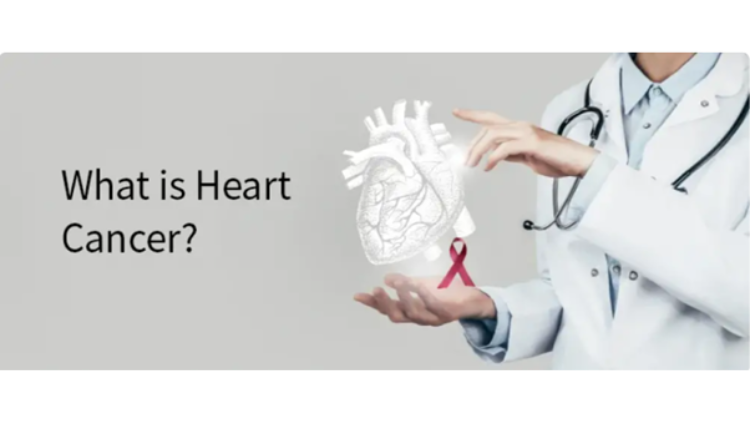Heart cancer is quite uncommon. It can either originate in the heart which is called primary heart cancer or spread from another location called secondary heart cancer.
Primary heart cancer is highly unusual, but the most frequently seen type in adults is angiosarcoma, which is a rare form of malignant soft tissue tumor.
Other types of sarcoma tumors that are cancerous can also occur in the heart and major blood vessels (such as the aorta and pulmonary arteries).
Heart cancer is more frequently seen when cancer cells migrate to the heart from a nearby organ. For instance, lung cancer can spread to the heart, resulting in secondary heart cancer. Cancer that has spread is referred to as metastatic cancer.
Secondary heart cancer is 30 to 40 times more prevalent than primary heart cancer. Metastatic cancer can reach the heart from the breast, esophagus, skin, lungs, and kidneys. It can also originate from cancers of the thymus gland (located in the chest) or from blood (leukemia) and lymphatic system (lymphoma).
What are the initial signs of heart cancer?

What are the risk factors for heart cancer?
The exact cause of angiosarcoma remains unknown; however, exposure to radiation and certain toxins may have a contributing effect.
Angiosarcomas of the heart can sometimes be found in several members of the same family. Researchers believe that some individuals may have a higher susceptibility to this primary heart cancer due to genetic factors, though they are still investigating the genetic foundations of these cancers.
The cause might be associated with a mutation in the gene known as protection of telomeres protein 1 (POT1). A parent carrying this gene mutation can transmit it to their biological offspring.
What methods are used to diagnose heart cancer?
Due to the rarity of heart cancer, healthcare professionals may misinterpret the origin of heart-related issues. In individuals with heart cancer, tumors are often detected while investigating heart problems. You may undergo one or more of the following assessments:
• Full blood count (FBC).
• Chest radiographs.
• CT scan (computed tomography) or MRI (magnetic resonance imaging).
• Echo test.
• Electrocardiogram (ECG).
• Coronary angiogram and cardiac catheterization.
• Coronary computed tomography angiography (CTA).

What are the treatment options for heart cancer?
Chemotherapy or radiation therapy, or a combination of both, may help to reduce the size of a heart tumor and alleviate symptoms. If another type of cancer metastasizes to the heart, your healthcare provider will focus on treating that primary cancer.
Other treatments depend on the tumor’s size, location, overall health, and age. Surgical removal of the tumor might be a viable option and can extend your life if a surgeon can completely excise the tumor. These procedures can be intricate, so it’s advisable to perform them at a specialized facility. In certain situations, surgeons may opt to remove the heart, perform surgery on it, and then return it to the body. This is known as autotransplantation. During this operation, a machine will circulate your blood, similar to some other heart surgeries.
In some circumstances, a heart transplant or an artificial heart may be considered. Additionally, you might have the opportunity to participate in a clinical trial to explore promising new treatments that are still being researched. Investigators are continually searching for more effective methods for early detection of the disease, improving existing treatments, and discovering new options.
What should I anticipate if I have heart cancer?
Heart cancer presents significant treatment challenges. Following treatment, it often recurs and may metastasize to other areas of the body.
The typical life expectancy after a heart cancer diagnosis is roughly six months without surgical intervention. Individuals may live longer than a year if surgery is viable. In certain cases, some individuals may survive several years after a complete tumor resection.
Decreasing to 24% by the third year, and 19% by the fifth year. The prognosis for secondary heart cancer is similarly unfavorable.









